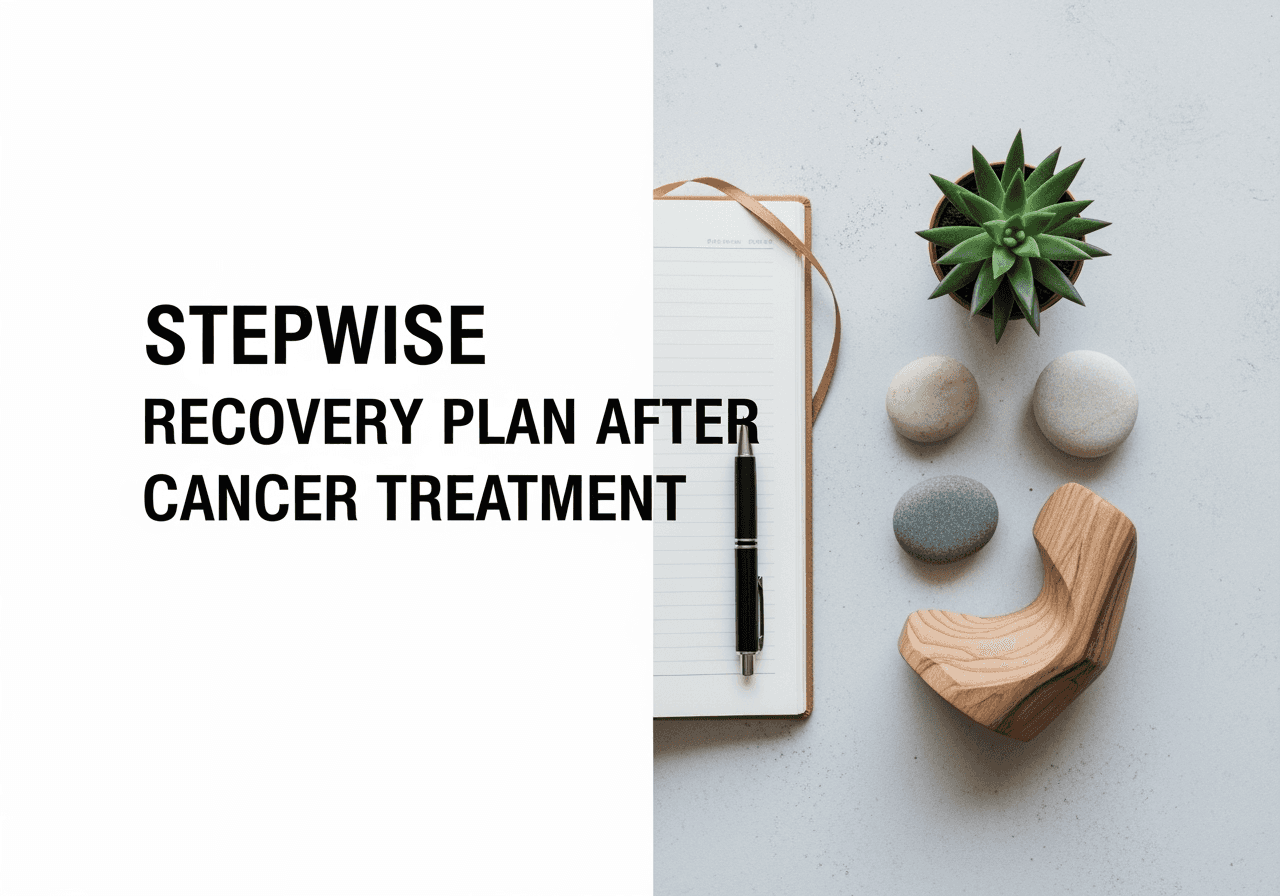
Stepwise Recovery Plan After Cancer Treatment
30 Oct, 2025
 Healthtrip
Healthtrip- Understanding Stepwise Recovery: What It Is and Why It's Crucial
- Where to Begin: Initial Assessment and Planning
- Physical Recovery: Regaining Strength and Energy
- Emotional and Mental Wellbeing: Addressing the Psychological Impact
- Nutritional Support: Fueling Your Body for Healing < li>Finding Support: Hospitals and Resources for Cancer Recovery
Understanding the Immediate Post-Treatment Phase
The immediate aftermath of cancer treatment can feel disorienting, a mix of relief and lingering discomfort. Your body has been through a lot, and it's normal to experience fatigue, pain, and emotional ups and downs. This phase is crucial for allowing your body to begin the healing process. Focus on rest and gentle self-care. Nutrition is key; think easily digestible foods that nourish your body. At this stage, it's extremely important to closely monitor any new or worsening symptoms. Keep open communication with your oncology team at hospitals like Yanhee International Hospital or Quironsalud Hospital Murcia, reporting any concerns promptly. They can provide guidance on managing side effects and adjusting medications. Leaning on your support system is also vital. Connect with family, friends, or support groups for emotional comfort and practical assistance. Healthtrip can assist in connecting you with resources like wellness retreats designed to help with initial recovery, focusing on gentle exercise, relaxation, and nutritional support to kickstart your journey back to health.
Most popular procedures in India
Rebuilding Physical Strength and Stamina
Regaining your physical strength and stamina is a gradual process that requires patience and consistency. Start with gentle exercises, such as walking or light stretching, gradually increasing the intensity and duration as you feel stronger. Consider working with a physical therapist who specializes in cancer recovery, like those potentially affiliated with hospitals like Bangkok Hospital, as they can design a personalized exercise program tailored to your specific needs and limitations. Nutrition continues to play a crucial role in rebuilding your body. Focus on a balanced diet rich in protein, vitamins, and minerals to support tissue repair and muscle growth. Stay hydrated by drinking plenty of water throughout the day. Be mindful of your body's signals, and don't push yourself too hard. Rest when you need to, and celebrate small victories along the way. Healthtrip can help you find specialized rehabilitation programs and nutritionists who understand the unique challenges of post-cancer recovery, providing a holistic approach that addresses both your physical and emotional well-being.
Addressing Emotional and Psychological Well-being
Cancer treatment takes a toll not only on your body but also on your emotional and psychological well-being. It’s normal to experience a range of emotions, including anxiety, sadness, and fear of recurrence. Acknowledge these feelings and allow yourself time to process them. Seeking professional help from a therapist or counselor specializing in cancer survivorship can provide you with valuable coping strategies and support. Consider exploring mindfulness techniques, such as meditation or yoga, to help manage stress and promote emotional balance. Engaging in activities you enjoy, whether it's spending time in nature, listening to music, or pursuing a hobby, can bring joy and a sense of purpose back into your life. Support groups can also be a valuable resource, connecting you with others who understand what you're going through. Healthtrip can connect you with reputable mental health professionals and support groups, ensuring you have access to the emotional support you need to navigate this challenging phase, even arranging for consultations with specialists at reputable institutions like London Medical if needed.
Wellness Treatments
Give yourself the time to relax
Lowest Prices Guaranteed!

Lowest Prices Guaranteed!
Navigating Follow-Up Care and Monitoring
Follow-up care and monitoring are essential for detecting and addressing any potential long-term side effects or recurrence of cancer. Adhere to your oncologist's recommended schedule for check-ups, blood tests, and imaging scans. Keep detailed records of any symptoms or changes you experience, and communicate them promptly to your healthcare team, perhaps at one of the Saudi German Hospitals. Don't hesitate to ask questions and seek clarification on any concerns you have about your health. Being proactive in your follow-up care empowers you to take control of your health and ensure early detection of any potential issues. Understand the importance of maintaining a healthy lifestyle, including a balanced diet, regular exercise, and stress management, to minimize the risk of recurrence. Healthtrip can assist you in coordinating your follow-up appointments and ensuring seamless communication between you and your healthcare providers, even facilitating second opinions from leading specialists at hospitals like Mount Elizabeth Hospital or National Cancer Centre Singapore if desired, ensuring you receive the most comprehensive and informed care possible.
Embracing a New Normal and Long-Term Wellness
Living beyond cancer treatment involves embracing a "new normal," which may look different from your life before diagnosis. It's a process of adapting to changes, finding new sources of joy and purpose, and prioritizing your well-being. Focus on building a strong support system, connecting with others who understand your experiences, and engaging in activities that bring you fulfillment. Take time for self-care, nurturing your physical, emotional, and spiritual health. Set realistic goals and celebrate small victories along the way. Remember that you are not alone, and there are resources available to help you navigate this journey. Explore opportunities for personal growth, such as learning a new skill or volunteering in your community. Healthtrip is committed to supporting you throughout your long-term wellness journey, offering access to wellness programs, nutritional guidance, and mental health resources designed to help you thrive. Whether it's coordinating a wellness retreat or connecting you with a specialist at Vejthani Hospital or Taoufik Clinic, Healthtrip is your partner in achieving lasting health and well-being.
Understanding Stepwise Recovery: What It Is and Why It's Crucial
Stepwise recovery, in the simplest terms, is a structured, phased approach to regaining your health and well-being after a significant medical event or illness. Think of it as climbing a staircase, one step at a time, rather than trying to leap to the top in a single bound. This method acknowledges that recovery isn't always linear; there will be good days and not-so-good days. It's about progressing incrementally, celebrating small victories, and adjusting your plan when needed. For those of you who have traveled the challenging road of cancer treatment, you know firsthand the toll it takes on your body and mind. Chemotherapy, radiation, surgery – they all leave lasting effects. Stepwise recovery provides a framework to address these effects methodically, ensuring that no aspect of your healing is overlooked. It’s a holistic approach, considering not just the physical aspects of recovery, but also the emotional, mental, and nutritional needs that are so vital for complete healing. It's not just about surviving; it’s about thriving and reclaiming your life.
Why is this stepwise approach so crucial? Well, imagine trying to run a marathon right after a major surgery. It's just not feasible, and it could even be harmful. Similarly, overwhelming your body with too much too soon during recovery can lead to setbacks, exhaustion, and discouragement. A stepwise plan helps you avoid those pitfalls by setting realistic goals and pacing your progress. It allows your body to adapt gradually, rebuild strength, and heal properly. Moreover, this structured approach empowers you to take control of your recovery journey. Instead of feeling like a passive recipient of treatment, you become an active participant in your own healing process. This sense of agency can be incredibly motivating and can significantly improve your overall outlook. Healthtrip understands the complexities of post-treatment care, and we're here to help you connect with the resources and support you need to navigate this journey effectively. We believe that everyone deserves a tailored recovery plan that acknowledges their unique circumstances and helps them achieve their full potential.
Where to Begin: Initial Assessment and Planning
So, you're ready to embark on your stepwise recovery journey. Fantastic! But where do you even begin? The first step is a comprehensive assessment. This isn’t just about a quick check-up; it's about taking a detailed inventory of your current health status. This involves working closely with your healthcare team, including your oncologist, primary care physician, and potentially other specialists like physical therapists, nutritionists, and mental health professionals. They’ll evaluate your physical strength, endurance, range of motion, and any lingering side effects from your treatment. They will also assess your emotional and mental well-being, looking for signs of anxiety, depression, or post-traumatic stress. A key part of this assessment is also a thorough review of your nutritional status. Cancer treatment can severely impact your appetite and ability to absorb nutrients. A registered dietitian can help identify any deficiencies and create a meal plan to support your recovery. Remember, this assessment is the foundation upon which your entire recovery plan will be built, so make sure it is thorough and personalized.
Once you have a clear understanding of your current health, it's time to develop a tailored recovery plan. This plan should outline specific, measurable, achievable, relevant, and time-bound (SMART) goals for your physical, emotional, and nutritional well-being. For example, a physical goal might be to walk for 30 minutes three times a week, gradually increasing the pace and distance. An emotional goal might be to attend a support group meeting weekly or practice mindfulness exercises daily. A nutritional goal might be to increase your intake of protein and fiber. The key here is to break down your recovery into manageable steps. Don't try to do everything at once. Start small, build momentum, and celebrate your progress along the way. Healthtrip can play a vital role in this planning stage. We can connect you with qualified healthcare professionals who specialize in cancer recovery, helping you create a comprehensive and personalized plan that meets your unique needs. Consider hospitals like Saudi German Hospital Cairo, Egypt with their comprehensive facilities can be crucial during this initial phase, providing access to a multidisciplinary team for a thorough assessment.
Physical Recovery: Regaining Strength and Energy
Physical recovery is often the most visible aspect of stepwise recovery, and it's certainly a critical one. Cancer treatment can leave you feeling weak, fatigued, and deconditioned. Rebuilding your strength and energy requires a gradual and consistent approach. The cornerstone of physical recovery is exercise. But don't worry, we're not talking about running marathons (unless that’s your thing!). Start with gentle activities like walking, swimming, or yoga. These low-impact exercises can help improve your cardiovascular health, build muscle strength, and increase your range of motion. As you get stronger, you can gradually increase the intensity and duration of your workouts. Working with a physical therapist is highly recommended. They can assess your physical limitations and develop a personalized exercise program that is safe and effective for you. They can also teach you proper techniques to avoid injury and maximize your results. Remember, consistency is key. Aim to exercise regularly, even on days when you don't feel like it. Even a short walk can make a big difference in your energy levels and overall well-being. Consider facilities like Fortis Shalimar Bagh, which offer comprehensive rehabilitation programs.
Alongside exercise, rest and sleep are equally important for physical recovery. Your body needs time to repair and rebuild itself after the rigors of cancer treatment. Aim for at least 7-8 hours of quality sleep each night. Establish a regular sleep schedule, create a relaxing bedtime routine, and make sure your bedroom is dark, quiet, and cool. If you're struggling with sleep, talk to your doctor about potential solutions. They may recommend lifestyle changes, relaxation techniques, or medication. Also, don't underestimate the power of naps. A short nap during the day can help boost your energy levels and improve your mood. Just be careful not to nap for too long, as this can interfere with your nighttime sleep. Finally, listen to your body. If you're feeling tired or sore, take a break. Don't push yourself too hard, especially in the early stages of recovery. Remember, stepwise recovery is about gradual progress, not instant results. Healthtrip understands the importance of physical rehabilitation, and we can help you find the right resources to support your recovery journey. We connect you with hospitals and clinics offering specialized programs designed to help you regain your strength and energy.
Also Read:
Emotional and Mental Wellbeing: Addressing the Psychological Impact
Cancer's journey doesn't end with the last chemotherapy session or surgical procedure; often, the most profound healing begins in the realm of emotional and mental wellbeing. The psychological impact of a cancer diagnosis and treatment can be significant, manifesting as anxiety, depression, fear, and post-traumatic stress. It's crucial to acknowledge these feelings and seek appropriate support, recognizing that tending to your mental health is as vital as tending to your physical body. This involves creating space for expressing your emotions, whether through journaling, art therapy, or simply talking to loved ones. Don't underestimate the power of connecting with others who understand your experience; support groups can provide a safe and validating environment where you can share your struggles and triumphs without judgment. Remember, it's okay to not be okay, and seeking professional help from a therapist or counselor specializing in oncology can provide invaluable tools and strategies for coping with the emotional challenges of cancer recovery. Many hospitals, like Memorial Bahçelievler Hospital and Memorial Sisli Hospital, offer integrated psycho-oncology services to support patients' mental and emotional health throughout their cancer journey. Healthtrip can help connect you with these resources, providing a comprehensive approach to your recovery. Your emotional wellbeing is a cornerstone of your overall health, and prioritizing it is an act of self-compassion and resilience.
The Importance of Mindfulness and Stress Reduction Techniques
In the whirlwind of appointments, medications, and physical recovery, it's easy to lose sight of the present moment. Mindfulness practices, such as meditation and deep breathing exercises, can help you reconnect with your inner self, reduce stress, and cultivate a sense of calm amidst the chaos. Even a few minutes of daily mindfulness can make a significant difference in managing anxiety and improving your overall mood. These techniques help you become more aware of your thoughts and feelings without judgment, allowing you to respond to challenges with greater clarity and equanimity. Activities like yoga and tai chi can also be incredibly beneficial, combining physical movement with mindful breathing to promote both physical and mental relaxation. Finding moments of joy and engaging in activities you love, whether it's listening to music, spending time in nature, or pursuing a creative hobby, can also contribute to your emotional wellbeing. Remember, self-care is not selfish; it's essential for maintaining your energy and resilience during cancer recovery. Explore resources offered by hospitals like the National Cancer Centre Singapore, which often incorporate integrative therapies into their patient care programs. Healthtrip can guide you to programs and resources tailored to your specific needs, ensuring that your emotional and mental wellbeing are prioritized throughout your healing journey.
Also Read:
Nutritional Support: Fueling Your Body for Healing
Nutrition plays a pivotal role in cancer recovery. It's like giving your body the premium fuel it needs to rebuild, repair, and regain its strength after the intense battle of cancer treatment. Chemotherapy, radiation, and surgery can often wreak havoc on your digestive system, leading to nausea, loss of appetite, and difficulty absorbing nutrients. Working with a registered dietitian or nutritionist who specializes in oncology is crucial to developing a personalized eating plan that addresses your specific needs and side effects. This may involve strategies such as eating small, frequent meals, choosing easily digestible foods, and managing specific symptoms like diarrhea or constipation. Protein is especially important for tissue repair and immune function, so prioritize lean sources like fish, poultry, beans, and lentils. Incorporate a variety of colorful fruits and vegetables to provide essential vitamins, minerals, and antioxidants that support your body's natural healing processes. Stay well-hydrated by drinking plenty of water or herbal teas, as dehydration can exacerbate fatigue and other side effects. Remember, food is medicine, and nourishing your body with the right nutrients can significantly enhance your recovery journey. Hospitals like Vejthani Hospital and Yanhee International Hospital often have specialized nutritionists on staff who can provide tailored dietary advice. Healthtrip can help you connect with these experts, ensuring that you receive the personalized nutritional support you need to thrive during and after cancer treatment.
The Importance of Supplements and Addressing Deficiencies
While a healthy diet is the foundation of nutritional support, some individuals may benefit from taking supplements to address specific nutrient deficiencies or support their overall wellbeing. However, it's crucial to consult with your doctor or a registered dietitian before starting any new supplements, as some can interact with cancer treatments or have unintended side effects. Common deficiencies in cancer patients include vitamin D, vitamin B12, iron, and omega-3 fatty acids. Vitamin D is essential for bone health and immune function, while vitamin B12 supports nerve function and red blood cell production. Iron deficiency can lead to fatigue and anemia, and omega-3 fatty acids can help reduce inflammation. Probiotics may also be beneficial for restoring gut health after antibiotic use or chemotherapy. However, it's important to choose high-quality supplements from reputable brands and to follow recommended dosages. Remember, supplements are meant to complement a healthy diet, not replace it. Focus on eating a variety of nutrient-rich foods and working with a healthcare professional to determine if supplements are right for you. Hospitals like Fortis Memorial Research Institute and Max Healthcare Saket can provide guidance on appropriate supplementation strategies. Healthtrip can connect you with qualified healthcare providers who can help you navigate the world of supplements and ensure that you are receiving the personalized nutritional support you need to optimize your recovery.
Also Read:
Finding Support: Hospitals and Resources for Cancer Recovery
Navigating cancer recovery can feel overwhelming, but you don't have to do it alone. A wealth of resources and support networks are available to help you through every step of the journey. Hospitals with comprehensive cancer centers often provide a range of services, including support groups, counseling, nutritional guidance, and integrative therapies. These centers bring together a multidisciplinary team of experts to address your physical, emotional, and spiritual needs. Look for hospitals that offer specialized rehabilitation programs designed to help you regain strength, mobility, and function after cancer treatment. Support groups can provide a safe and validating space to connect with others who understand your experience, share your struggles, and celebrate your triumphs. Online resources, such as the websites for the American Cancer Society and the National Cancer Institute, offer a wealth of information on cancer types, treatments, and survivorship. Don't hesitate to reach out to family, friends, and community organizations for additional support. Remember, seeking help is a sign of strength, not weakness. Explore options at hospitals like Mount Elizabeth Hospital and Singapore General Hospital, known for their comprehensive cancer care. Healthtrip can help you connect with these hospitals and other resources tailored to your specific needs, ensuring that you have the support you need to thrive during and after cancer treatment.
The Role of Rehabilitation and Specialized Programs
Rehabilitation plays a crucial role in cancer recovery, helping you regain physical function, manage side effects, and improve your overall quality of life. Cancer rehabilitation programs are designed to address a wide range of issues, including fatigue, pain, lymphedema, and cognitive difficulties. These programs may include physical therapy, occupational therapy, speech therapy, and psychological support. Physical therapy can help you regain strength, flexibility, and endurance, while occupational therapy can help you adapt to daily activities and improve your independence. Speech therapy can address swallowing and communication problems, and psychological support can help you cope with the emotional challenges of cancer recovery. Specialized programs may be available for specific types of cancer or treatment-related side effects. For example, lymphedema therapy can help manage swelling in the arms or legs after lymph node removal. Cognitive rehabilitation can help improve memory, attention, and other cognitive functions that may be affected by chemotherapy or radiation. Hospitals like The Royal Marsden Private Care, London, and Cleveland Clinic London offer comprehensive rehabilitation programs tailored to the needs of cancer survivors. Healthtrip can help you find rehabilitation programs that are right for you, ensuring that you receive the specialized care you need to regain your physical and emotional wellbeing.
Most popular wellness packages
Related Blogs
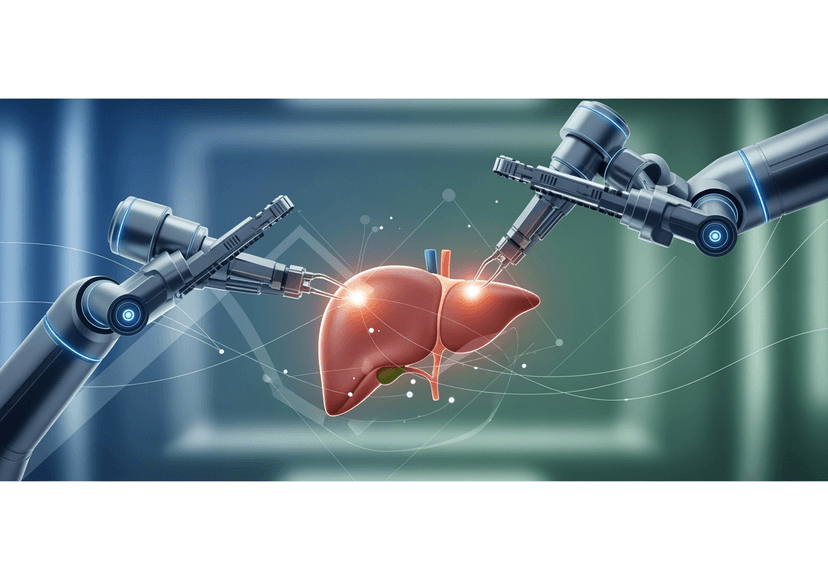
Advanced Robotic Technology Used in Liver Transplant
Detailed insights into liver transplant – doctors, hospitals, technology, recovery,
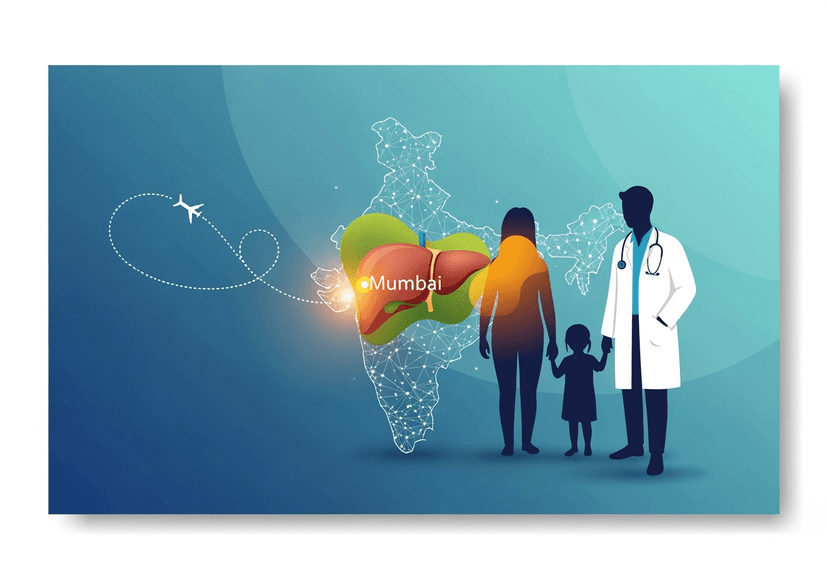
How Healthtrip Supports Foreign Patients for Liver Transplant in India
Detailed insights into liver transplant – doctors, hospitals, technology, recovery,
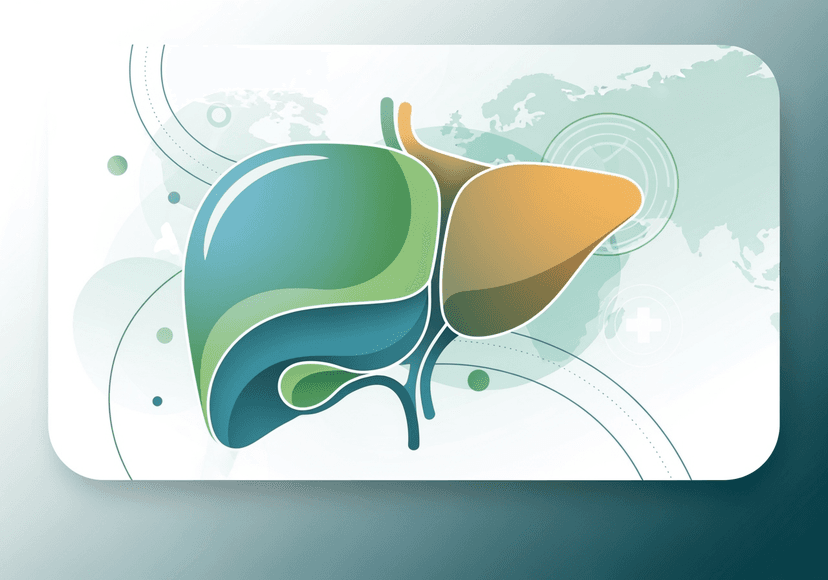
Top Medical Packages for Liver Transplant Offered by Healthtrip
Detailed insights into liver transplant – doctors, hospitals, technology, recovery,
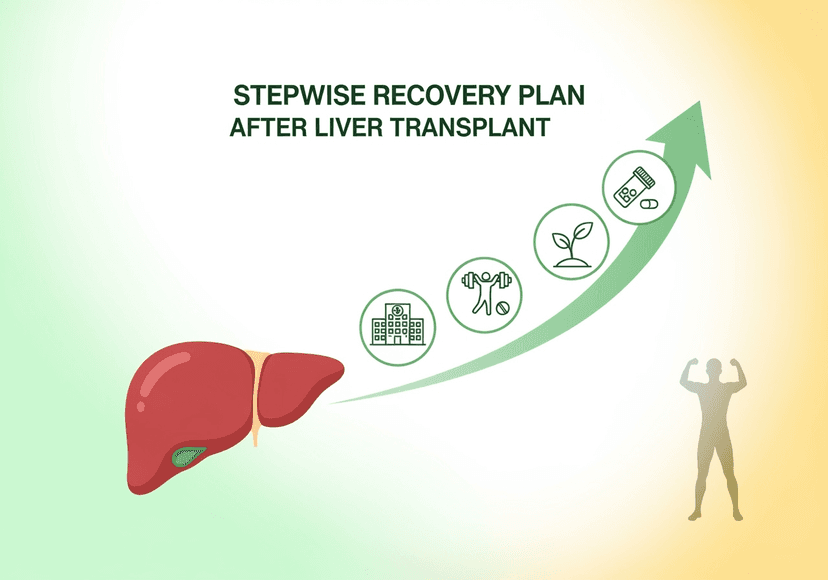
Stepwise Recovery Plan After Liver Transplant
Detailed insights into liver transplant – doctors, hospitals, technology, recovery,

Choosing the Right Surgeon for Liver Transplant
Detailed insights into liver transplant – doctors, hospitals, technology, recovery,
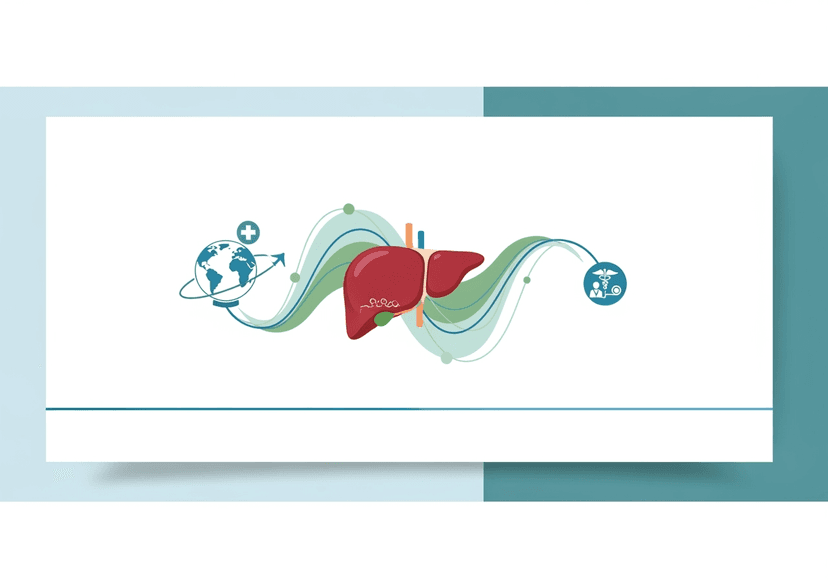
Healthtrip Experts Explain the Complete Liver Transplant Process
Detailed insights into liver transplant – doctors, hospitals, technology, recovery,










